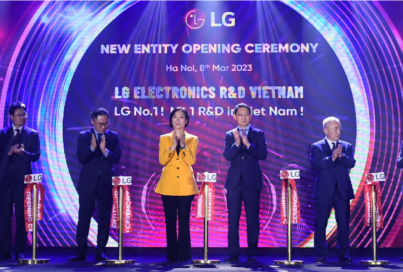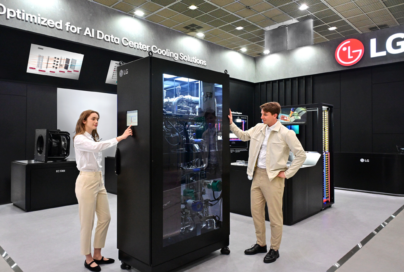LG Accelerates Vietnam R&D Operations With Multi-Industry Focus
LGEDV Emerges as Strategic R&D Hub, Expanding Research Portfolio
to Automotive Components, webOS and Home Appliances

SEOUL, Nov. 5, 2024 — LG Electronics (LG) is strengthening its research and development (R&D) capabilities in Vietnam, expanding its local research program into areas including vehicle components, the webOS platform and home appliances.
This year, LG’s Vietnamese R&D subsidiary, LG Electronics Development Vietnam (LGEDV), has integrated living, kitchen and air solutions – all considered core products – into its software development and verification portfolio.
LG established its local R&D network in Vietnam in 2016 with the opening of the R&D Center in Hanoi. Growing its on-the-ground capabilities, the company set up two additional R&D branch offices in Haiphong and Da Nang in 2020. Last year, LG reorganized its Vietnamese research structure, bringing the VS R&D Center under the auspices of LGEDV, which has now become one of the company’s key research institutes in Southeast Asia.
LGEDV primarily focuses on software development and verification for LG’s In-Vehicle Infotainment (IVI) systems, which are central to the company’s strong performance in the B2B mobility solutions sector. The IVI business, which covers telematics, Audio Video Navigation (AVN) and clusters, accounts for more than 50 percent of all revenue generated by LG’s vehicle component solutions business. In addition to IVI systems, LGEDV has been involved in the development of the webOS platform since 2022, and has expanded its scope to include home appliances this year.
LG is continuously strengthening its R&D competencies in Vietnam through various recruitment and talent development initiatives, including in-house training programs led by experts from LG headquarters. The company has successfully attracted and nurtured talented individuals from Vietnam’s young, well-educated population.
Vietnam’s highly-skilled R&D workforce continues to grow, supported by the government’s aggressive R&D talent development strategies, which center on the cultivation of ICT talent at Hanoi National University. According to Vietnam’s General Statistics Office, the country’s population exceeded 100 million last year, with people under the age of 40 accounting for approximately 60 percent of the total populace.
Indicative of the caliber of Vietnam-educated developers, five out of ten coding experts selected by LG last year were from LGEDV. Huynh Tan Y, a researcher with LGEDV, won the LG Coding Competition at the LG Software Developer Conference (SDC) 2023, which involved around 100 developers from all across the LG Group.
LGEDV currently employs around 1,100 research staff, with plans to increase this figure to over 1,200 by the end of the year. A testament to LG’s effectiveness in the area of R&D recruitment and talent development, the company’s rapidly-growing Vietnamese R&D workforce numbered only 200 as recently as 2019.
LG is building a global system of close R&D cooperation, with Korea at its center, and aims to further strengthen its capabilities in product development and technology research.
The company maintains research institutes and development teams under each of its business units, with the CTO division developing core technologies from a mid to long-term perspective. In Korea, LG has R&D arms in Seocho, Yangjae, Gasan, Incheon, Changwon and Magok, while internationally, it operates 22 research institutes spanning North America, Europe, Japan, India and Vietnam. These institutes focus on global R&D activities and business responses geared toward identifying future growth engines.
Along with world-class R&D centers, LG’s Vietnam operations encompass manufacturing facilities in Haiphong, producing washing machines, refrigerators, vacuum cleaners and IVI products, as well as a sales subsidiary in Hanoi.
# # #

![[Mobility Inside] Overseas Hubs of LG's Mobility Technology](https://www.lgnewsroom.com/wp-content/uploads/2023/11/Mobility-Inside_RD-Center-FI-e1699927077331-402x272.png)



